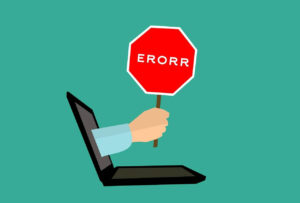What Is A Limited Company?

When you’re starting a business, one of the first decisions you’ll need to make is how it will be structured, and one of the most common set-ups for small businesses in the UK is a limited company.
If you’re looking for an accountant who can take care of the logistics of your business finances and answer all of your business-related questions, look no further than Joanna Bookkeeping – A professional practice based in Oxford, UK, offering bespoke accounting solutions for businesses nationwide.
What is a limited company?
A limited company is a type of business structure that has a legal identity of its own, separate from its owners, shareholders, and directors.
Even if the company is comprised of only one individual who is both the shareholder and the director, it is still a separate legal entity. This means that directors and shareholders cannot just take money out of the company whenever they want. In fact, the money that the company earns through sales belongs to the company as a whole, not to any individual person.
Limited companies are required to register with Companies House and appoint a company director.
Types of limited companies
We have two kinds of limited companies: private limited companies and public limited companies.
Private
A private limited company is owned by its shareholders, who benefit from the company’s profits, and at least one shareholder is needed. Private limited companies cannot offer shares to the general public.
Public (PLC)
A public limited company is a type of business structure that allows the limited company to raise capital by offering shares to the public. These shares are traded on the stock exchange, but at least £50,000 of shares must be issued before they can trade. The public limited company structure is best suited to larger, more established businesses.
What does limited liability mean?
Limited liability is the protection of personal assets that belong to shareholders in case the business fails. This means that if you file for bankruptcy, creditors cannot access any personal savings, house, or other personal assets. Shareholders are also not held personally responsible for any debts incurred by the limited company.
If you are the sole shareholder/director, creating a limited company that has a separate legal entity from yourself can protect you from personal liability if your business is sued. This legal protection is called “limited liability.”
If you’re looking for more in-depth information, Joanna Bookkeeping can help to make important decisions when it comes to setting up your limited company.
Who runs a limited company?
A limited company is owned by one or more shareholders but is run by directors on behalf of its shareholders. Each individual has their role and responsibilities:
Shareholder:
- Is responsible for appointing the director(s)
- Has full or shared ownership of the company through shares
- May have voting rights, depending on their role within the company’s Articles of Association
Director:
- Responsible for managing the company
- Must be 16 years old or over
- Must act in the best interest of the business
- Makes decisions
*You can find out more about the role and responsibility of limited company directors from our previous article.
We are a modern and fully digital accountancy and bookkeeping practice empowering SMEs to maximise their potential and grow big! Discover even more about limited companies on these helpful blogs from our website –
Checklist for setting up a limited company
Limited company or sole trader, which is better?
Here at Joanna Bookkeeping, we know the ins and outs of the limited company business model, and our team of qualified accountants can help you learn how to set up a limited company so you can focus on what’s most important: growing your business!
Book a FREE call and have a chat with our accountants from Oxford to learn more about how we can help your company succeed. PLUS – because we’re fully digital, we offer services to businesses all over the UK!
Frequently Asked Questions
As a company has its separate legal entity and undertakes its own business activities, it is usually fully responsible for its debts as well. There are, however, some instances, when directors of a company can become personally liable for a company's debts.
In general, a limited company is responsible for its own debts, however, there are certain circumstances when a company director can be held reponsible for the company debts. One example is when a debt was secured by a personal guarantee. In this case, a director will be personally liable to settle the debt. Another example is when a company director misconducts by making false representations to secure funding or defrauding creditors. Being a company director is not only a matter of a higher status. This comes with legal responsibilities. That's why it's so important to have qualified people around you that can advise you, so you don't get into trouble. Simply not knowing wouldn't be an acceptable excuse in court.
In a nutshell, the answer is not really. The directors are responsible for a day-to-day running of a company and making strategic decisions. It is, however, possible for the shareholders to call a general meeting and vote to remove a company director. How much power a shareholder will have to do so, will depend on their percentage of shares and voting rights. Shareholders with very little voting rights, will have no power over directors.
More Articles
Categories

Your Accountant in Oxford
Oxford Office
Joanna Bookkeeping
The Wheelhouse Angel Court
First Floor, Angel Court
81 St Clements St
Oxford
OX4 1AW
Connect
joanna@joannabookkeeping.co.uk
01865 591952





